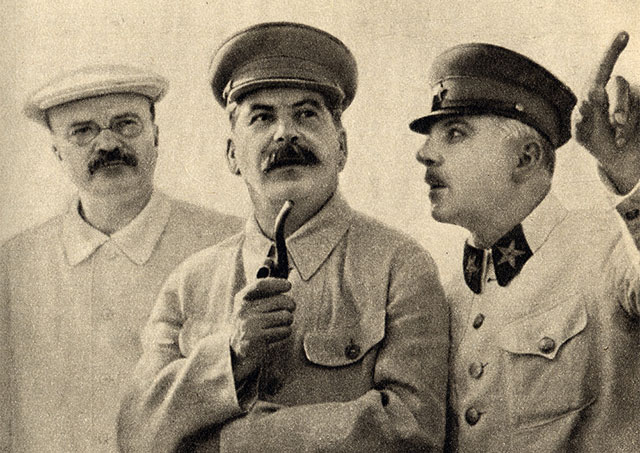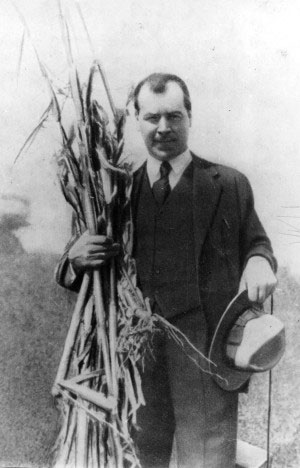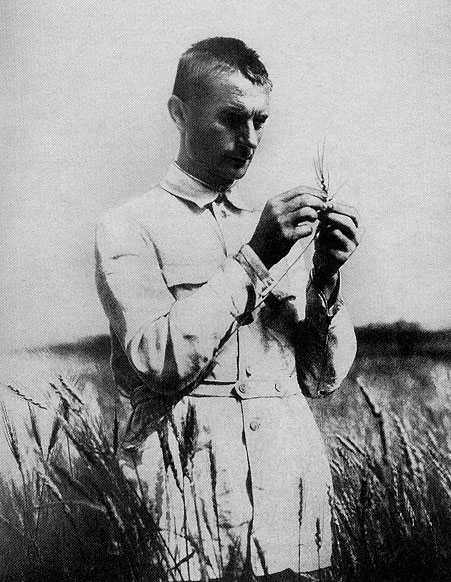
If early developments are any indication, science will not fare well in the Trump administration. In addition to calling for reduced funding of scientific research for proclaimed budgetary reasons and asking for the names of all energy department scientists who have attended climate change conferences, Trump has appointed Scott Pruitt, a climate-change denier, to lead the US Environmental Protection Agency (EPA), while choosing another denier, former Texas Gov. Rick Perry to lead the US Department of Energy. Trump himself has labeled global warming a hoax created by the Chinese to damage the US economy, despite climate change being almost universally acknowledged by scientists.
Trump’s actions reflect his intention to make more room for the expanded exploitation of fossil fuels, the leading sources of climate-warming greenhouse gases, and to scuttle international agreements that would reduce fossil fuel use in favor of solar, wind and geothermal alternatives. In this endeavor, he can count on widespread support from fellow Republicans.
One recent study found that 182 members of the current House and Senate, virtually all of them Republicans, deny the reality of anthropogenic climate change. Together, these members represent about 60 percent of all Americans. Most of them received campaign funding support from the fossil fuel industry.
Sen. James Inhofe, the most visible of the group and chair of the powerful Senate Environment Committee, calls climate change “the greatest hoax ever perpetrated on the American people.” In an absurd attempt to prove his point that the Earth is not warming, he brought a snowball into the US Senate after a winter snowstorm. Recently reelected Wisconsin Sen. Ron Johnson echoed Inhofe’s remarks: “I absolutely do not believe in the science of man-caused climate change…. It’s not proven by any stretch of the imagination.” His views run counter to almost universal acceptance of anthropogenic climate change by atmospheric scientists.
Several of their counterparts from the House Science and Environment Committees are equally blunt. Rep. Dana Rohrabacher, a California Republican, calls global warming “a total fraud.” Rep. Joe Barton of Texas challenges climate change from the standpoint of fundamentalist Christianity. “I would point out if you’re a believer in the Bible, one would have to say the Great Flood is an example of climate change,” Barton says. “And that certainly wasn’t because mankind overdeveloped hydrocarbon energy.”
As many as half of the GOP congressional delegation supports a literal Biblical interpretation of Genesis, denying Darwin’s theory of evolution, another universally accepted concept among scientists. In some states, such as Texas, textbooks give as much or greater credence to creationism.
Meanwhile, Texas Sen. Ted Cruz has described global warming as the doctrine of a modern secular church (academic science), arguing that he, a skeptic, is a modern-day Galileo. During the Republican presidential primary, Cruz told a crowd of supporters that “it used to be accepted scientific wisdom that the earth is flat, and this heretic named Galileo was branded a denier.” Not surprisingly, Cruz was not challenged by his audience, which seemed unaware that Cruz had his history as wrong as his science.
In the early 1600s, when Galileo was considered a heretic by the Catholic Church, everyone knew the Earth was round; Columbus had sailed around it more than a century earlier. What Galileo challenged was the idea that the sun revolved around the Earth, still a popular belief in his day. Here also, it was not science, but ideology — in this case, a Biblical literalism — that stood against the truth.
The current GOP dismissal of accepted science, either for reasons of religious belief or a desire to “drill baby, drill,” must be challenged. To allow ideology to trump peer-reviewed research would mean repeating one of the most troubling episodes in the history of science. It happened in the Soviet Union.
The Greatest Geneticist
Nikolai Ivanovich Vavilov, a Russian, was perhaps the greatest geneticist of the 20th century and the most famous scientist who ever lived that you’ve never heard of. In 1993, while making a film called Genetic Time Bomb, about the loss of genetic diversity in world agriculture, my colleague Vivia Boe and I created a short segment about Vavilov’s amazing but tragic story:
Vavilov was a Mendelian. Decades earlier, the Austrian monk Gregor Mendel proved that characteristics or “traits” in plants and animals were hereditary and passed genetically from generation to generation. In the early years of the Soviet Union, Vavilov was the world’s greatest crop explorer. He understood that Soviet crop-breeding programs would be greatly enhanced by collecting seeds from around the world that might possibly contain important genetic resistance to pests and disease, or other important qualities such as heat or cold or drought resistance. He traveled on five continents, including North America, while he was free to travel.
 Nikolai Vavilov, the greatest plant geneticist of his time, was imprisoned by Stalin. (Credit: Public Domain)Vavilov’s work was universally acclaimed, especially his groundbreaking 1926 volume, Studies on the Origin of Cultivated Plants, in which he developed his theory that all modern food crops, no matter how widely they are now grown, were initially cultivated in eight “centers of origin.”
Nikolai Vavilov, the greatest plant geneticist of his time, was imprisoned by Stalin. (Credit: Public Domain)Vavilov’s work was universally acclaimed, especially his groundbreaking 1926 volume, Studies on the Origin of Cultivated Plants, in which he developed his theory that all modern food crops, no matter how widely they are now grown, were initially cultivated in eight “centers of origin.”
For example, the center of origin for wheat was the Middle East; for corn, Mexico; for potatoes, the Peruvian Andes; and for rice, Southeast Asia. If you wanted to find the greatest variety of species for a crop, Vavilov argued, you should look to its center of origin, because that was the place where the crop had coexisted for the longest time with its enemies and developed its defenses, and where humans had cultivated the most diversity for that crop — Peru, for instance, had hundreds, perhaps thousands of potato varieties.
Though modified by more recent research, Vavilov’s theory of centers of origin was immensely valuable to crop scientists as they looked for varieties containing characteristics that might be useful to breeding programs. In the face of terrible travel hardships, Vavilov himself collected more than 100,000 different types of seeds and took them back to Leningrad (as St. Petersburg was then called), where he established a seed bank to preserve them and grow them out. The crop-breeding work carried out at the institute that now bears Vavilov’s name has made important contributions toward feeding a growing world population.
Researching Vavilov’s story took Vivia and me first to the UK, where we met Jack Hawkes, a legendary British crop scientist who, as a young man in the 1930s, had met Vavilov. “He was a larger-than-life character,” Hawkes told us, adding with a characteristic dry British wit that, “He treated me, a lowly graduate student, as if I was an esteemed colleague of many years’ standing, which, of course, impressed me immensely. His ideas of centers of origin were immensely influential.”
From the UK, we flew on to St. Petersburg to visit the seed bank Vavilov created, and meet elderly scientists who had worked with him. The seed bank and today’s Vavilov Institute can be found in an aging building on St. Isaac’s Square. The walls are adorned with photos of the handsome Vavilov and his world travels. His office has been kept just as he left it in 1940.
Martyr for Science
By the early 1930s, Vavilov had become the world’s most famous geneticist. At a Cornell University genetics conference in 1932, he was the most acclaimed participant. Dozens of foreign visitors made the trip to Leningrad to meet him and learn about his work in seed collecting and crop breeding. But for all his international fame, Vavilov ran into trouble at home. Trofim Lysenko, a Soviet biologist, rejected what he considered the slow pace of conventional crop breeding. His view was that crops could be improved by such manipulation as soaking wheat seeds in cold water to enable them to adapt to colder weather. He had some early limited success with these ideas, even winning praise for his work from Vavilov himself. But Lysenko went further, arguing that these adaptations would then be genetically transferred to succeeding generations. For Vavilov, such ideas were not credible, and he began to criticize Lysenko’s claims.
 Trofim Lysenko’s anti-scientific theories won favor from Stalin because Lysenko promised agricultural miracles. (Credit: Public Domain) The dispute between Lysenko and Vavilov had a long historical precedent. Scientific genetics as proposed by Mendel was widely accepted. In this view, evolution favored organisms with special traits — for example, giraffes got taller over time because the taller giraffes survived when leaves in trees grew scarce on lower branches and passed on their genes. But there was an earlier view, proposed by Jean-Baptiste Lamarck, a French biologist. Lamarck argued that characteristics could be acquired — giraffes grew taller, he claimed, because they stretched to reach higher leaves. They could then pass on the greater length of their necks to their progeny.
Trofim Lysenko’s anti-scientific theories won favor from Stalin because Lysenko promised agricultural miracles. (Credit: Public Domain) The dispute between Lysenko and Vavilov had a long historical precedent. Scientific genetics as proposed by Mendel was widely accepted. In this view, evolution favored organisms with special traits — for example, giraffes got taller over time because the taller giraffes survived when leaves in trees grew scarce on lower branches and passed on their genes. But there was an earlier view, proposed by Jean-Baptiste Lamarck, a French biologist. Lamarck argued that characteristics could be acquired — giraffes grew taller, he claimed, because they stretched to reach higher leaves. They could then pass on the greater length of their necks to their progeny.
Vavilov, the Mendelian, ran afoul of Russian dictator Joseph Stalin — in suggesting that Lysenko’s Lamarckian ideas were nonsense. Stalin liked Lysenko’s promises of rapid agricultural improvement and Lysenko’s proletarian background. He had come from peasant stock, while Vavilov was the son of a middle-class businessman. “Lysenko was a charlatan,” one of Vavilov’s biographers, Semyon Resnick, told Vivia and me. “He stood for fictions. But fictions that were beloved by Stalin because Lysenko promised him miracles in agriculture.”
Stalin began to restrict Vavilov’s travel and he cracked down on the research conducted by Vavilov and his vibrant team of scientists in Leningrad. “Every day, we came to work and we learned that someone had been arrested,” one of them told us in 1993. Half a century after the events had occurred, he cried visibly as he described the events. Finally, in August 1940 Vavilov himself was arrested while collecting seeds in the Ukraine. Resnick told us that Vavilov was interviewed and tortured for 1,700 hours after having been found guilty as an “enemy of the state” in a show trial. Eventually, in January 1943 Vavilov, a man whose contributions toward feeding the world were among the greatest ever, died in a small grim cell in one of Stalin’s prisons — ironically, of malnutrition.
Heroic Scientists
There is a remarkable postscript to Vavilov’s tragic story. In St. Petersburg, the scientists at the Vavilov Institute told us his fight for scientific integrity had inspired heroic, selfless behavior from many of his colleagues.
In June 1941 while Vavilov was in prison, the German Army invaded the Soviet Union and soon after, surrounded Leningrad, allowing very little food to reach the beleaguered city. Nina Kamchatkina, a college professor, told us what happened then, when she was a little girl. “German planes came over and bombed us,” she said. “In one case, they blew up a sugar factory, scattering the sugar, which melted into the dirt. But we had no food, so we ate the dirt.” In time, the food ration in Leningrad was reduced to four ounces of bread a day. People began to starve to death. The winter of 1941-42 was one of the coldest in the city’s history, with temperatures plunging to 40 degrees below zero. Hungry and freezing, 600,000 residents of the city perished in a few months.
St. Petersburg’s public television station provided Vivia and me with archival footage of that horrible winter. It cut at my heart: women sobbing over the bodies of family members, sleds carrying shrouded bodies through the icy streets, people staggering through the snow, tiny bits of bread being sliced, planes, bombs, people digging through the hard-frozen Neva River to obtain a little drinking water. Through a strange twist of fate, Vavilov’s institute was spared from German bombing because it stood across the street from the opulent Astoria Hotel, where Hitler hoped to hold his victory celebration when Leningrad fell to the Germans. It never did, but the heroic defense of Leningrad lasted 900 days and took the lives of a million civilians, a million Soviet soldiers and half a million Germans.
In the atmosphere of hunger and death that existed during the siege, starving people knew that Vavilov’s institute contained mountains of seeds that could be cooked and eaten. The scientists who worked there knew it as well. They had to defend Vavilov’s collection against attacks by both humans and rats. And of course, they were also desperately hungry and tempted by the seeds. “You have to imagine this situation,” explained Resnick. “War, Germans, a million people dying in the streets in Leningrad. These scientists, they too were starving. But they knew, these seeds, they were priceless.”
They knew what it had taken for Vavilov to obtain the seeds and how important they might eventually prove to be in feeding people the world over. Their idealism prevailed. One by one, scientists perished, surrounded by mountains of seeds, saving the collections that could have saved them. At least nine of them died at their desks: directors of the rice collection, the potato collection and others, men and women, young and old. Many more came close to perishing before the German siege finally ended. Years later, some of the seeds they saved were used in the United States to breed resistance to a disease that threatened American wheat.
The Ideological Suppression of Science
Just as Stalin embraced Lysenko’s pseudo-science for its utility within his authoritarian political plan for the rapid expansion of centralized agricultural production, Trump has embraced the pseudo-science of climate denial for its utility within his own authoritarian plan for unfettered, free-market-based industrial production. Both men stand within a long history of leaders espousing widely varying ideologies who have tried to suppress scientific findings when they ran counter to political or economic or religious dogma.
In our own time, it has been the far right that has ignored scientific findings. The Christian Right holds up an unscientific Biblical literalism about a 6,000-year-old Earth where humans shared space with dinosaurs, while the Economic Right has suppressed and ignored the overwhelming scientific consensus about human-caused climate change because doing something about the problem might cost money and threaten the profits of fossil fuel corporations. When dogma trumps science, we are all the losers. As I write these words, the dangers are even more evident. We now have a president-elect who is dismissive of science and appears willing to suppress it if necessary to carry out his pro-fossil-fuel agenda.
The Russians, at least, learned an important lesson from the “Vavilov affair.” It took many years, and Vavilov’s “rehabilitation” did not begin until 1955, when Stalin was already dead. Still, Lysenko, who in later years denied his role in Vavilov’s persecution, carried the day politically until he was denounced in the Soviet Academy of Sciences by the famous physicist Andrei Sakharov in 1967. Lysenko, the Stalinist ideologue, was interestingly more like the religious right than the economic rightists in our country whose position on climate change is shaped by the largesse of the fossil fuel industry. Lysenko was never interested in money, only power and Stalinist ideology. He lived simply but used his power to destroy others. In the end, it was all in vain. He died scorned and hated in his country in 1976.
I hope the Vavilov story will be shared widely, lest history repeat itself, this time in a tragedy of climate change that threatens all generations to come.
Join us in defending the truth before it’s too late
The future of independent journalism is uncertain, and the consequences of losing it are too grave to ignore. To ensure Truthout remains safe, strong, and free, we need to raise $43,000 in the next 6 days. Every dollar raised goes directly toward the costs of producing news you can trust.
Please give what you can — because by supporting us with a tax-deductible donation, you’re not just preserving a source of news, you’re helping to safeguard what’s left of our democracy.